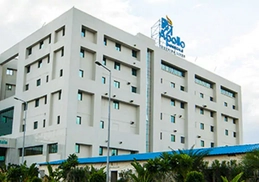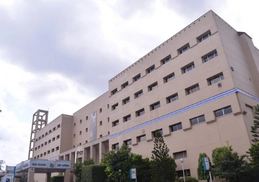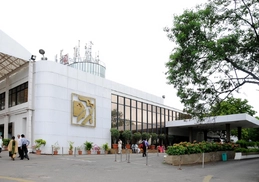
+91 8095511877

+91 8095511877
A pacemaker is an electronic device that controls the way your heartbeats. The number of times your heart beats in a minute is called heart rate. In a healthy person, the heart beats about 60 to 90 times in a minute.
If your heart rate is too slow or too fast, you will have problems. A pacemaker will increase your heart rate if it is slow. The surgeon will implant the pacemaker in your body by a small surgery.
In your heart, there is an electrical system that makes it beat at a specific rate and rhythm. The SA node, a bundle of nerve fibers in the right atrium, is the generator for electrical signals. These signals then pass along through the other chambers and come back. The chambers of the heart contract as the signals reach it and relax as it moves away.
Any disturbance in the generation and transmission of signals can make your heartbeat different than usual. If your heart is beating too slow, a pacemaker will increase it to normal levels.
A pacemaker consists mainly of three parts, a small pulse generator, wires, and electrical leads. The surgeon will place the generator under the skin close to the collar bone. From the generator, wires will take the leads to heart. The surgeon will then attach the leads to the walls of the right atrium. The generator will then send signals to the leads through the wires. The leads will then transmit the signals to the heart chambers to make them contract and relax.
The duration of the procedure will be around an hour or so. You will have to stay in the hospital for a day after pacemaker surgery.
Your heart has an electrical system that helps it to beat regularly. A heartbeat represents the contraction of the upper chambers or the atria and lower chambers or ventricles. The SA node in the right atrium is responsible for the generation of electrical signals.
When the SA node generates a signal, the atria will contract to pump blood to the ventricles. The signal then travels down to the ventricles, making them contract. The contraction of the ventricle pumps the blood to the lungs and other parts of the body. The contraction of the atria and ventricle causes a heartbeat.
Problems with the SA node or the pathway for the signals will make your heartbeat slower than usual. It reduces the amount of blood pumped by the heart to other parts of your body, causing symptoms like dizziness, lightheadedness, fainting, etc.
A pacemaker helps to increase your heart rate if it falls below normal. It will signal to the heart muscles to contract and relax, creating additional heartbeats whenever necessary.
There are different types of pacemakers to correct irregular heartbeats. The type of pacemaker you will have will depend on the cause of your arrhythmia.
Before surgery
You will have many tests to assess your heart rate and rhythm.
An echocardiogram helps to assess the thickness of your heart walls. An ECG will help to find out any abnormalities in heart rate and rhythm. A Holter monitoring test will observe the way your heart beats for 24 hours.
You will have to tell your doctor about the medicines you are regularly taking. Medicines like blood thinners and some herbal supplements will have to be stopped a couple of days before the surgery. It is to avoid bleeding.
You will have to be in the hospital the night before or on the day of surgery. There will be no restrictions on food the night before, as you will not have general anesthesia. You will have to take a mild sedative prescribed by the doctor the night before to calm you down. It will also help you to sleep better.
During surgery
The nursing staff will move you to the operating room at the time prescribed for operation.You will have an IV line through which the doctor will give a sedative. It will make you feel drowsy, but you will be awake.
The surgeon will then make a small incision below your collar bone. It is to expose a vein that goes to the heart. Before the incision, the surgeon will apply a local anesthetic to numb the area. So you will not feel any pain during the incision.
The next step is to insert the leads into the vein. The surgeon will then slowly move the leads to the heart through the vein. Realtime X-ray images will help the surgeon to guide the leads correctly.
Once it reaches the heart, the surgeon will slowly anchor the leads to walls of the heart chamber, as decided previously.
The surgeon will start with the surgery to place the generator under the skin. For this, he or she will make a small pocket below your collar bone. The pocket will be such that the pulse generator fits snugly into it. The surgeon will then attach the free end of the leads to the generator.
The next step is to program the generator to send signals to the heart, as is necessary. Whenever there is a delay in the intervals between heartbeats, the generator will fire a signal to the heart. This signal helps to initiate a heartbeat and keep the heart rate normal.
You will have a few more tests to assess how the pacemaker works. An echocardiogram and ECG will help the surgeon to know the way your heart is beating. Once everything is ok, the nursing staff will take you back to your room
After surgery
Once back in your room, you will slowly come out of the drowsiness of sedation. A monitor will show your heart rate and rhythm. It helps the nurse to detect any variations at the earliest.
You will be in the hospital for the night. The doctor will ask you to take short walks in the room. Sitting by the side of the bed will not be a problem for you.
The next day morning, your doctor will come for a review. If everything is ok, you will be able to go home.
For a couple of days after surgery, you will have some pain in the site of implantation of the pacemaker. Painkillers will help you control the pain and swelling.
You can go back to your normal activities, including driving within a week. It is better to avoid too much physical strain for a few days.
You will have to aware of the signs of complications after pacemaker surgery. These include dizziness, difficulty in breathing, nausea, chest pain, etc. Signs of wound infection include high fever, pain, and swelling in the area of the wound.
Your pacemaker’s generator runs on batteries. You will have to replace the batteries once the charge goes off. The average life will be between seven to ten years. The surgery to replace the battery is a simple one without any complications.
With a pacemaker, you will have very few restrictions in life. You can take part in sports, games as well as other physically demanding tasks. But, you will have to take good care to prevent any injury to the implantation site. It is best to pad the area before any contact sports as it will help to avoid any damage.
Though rare, these include
All these complications are easily correctable and hence are minor.
Your pacemaker will interfere with some electronic and electrical equipment in your daily life.
Security equipment- Your pacemaker may trigger anti-theft or security alarms due to the presence of metal components. It will be a good idea to carry your pacemaker identification cards with you while going to airports. It helps you to avoid a lot of unnecessary explanations. Also, it is always a better idea to expose you as less as possible to security equipment.
Household articles- You should not keep your mobile phones in your shirt pockets after having a pacemaker. While using a microwave oven or hair dryers, you will have to keep a distance of six inches from your body. For induction stoves, you will have to keep a safe distance of two feet. Avoiding it altogether is a still better option.
Medical procedures- You cannot have an MRI scan with a pacemaker due to its strong magnetic field. Medical procedures that use ultrasonic vibrations can also affect the working of your pacemaker. You should consult your doctor before having procedures like Lithotripsy, TENS, and ultrasonic dental procedures


This article has been reviewed for medical correctness and relevance by
Dr Manish Hinduja
Dr Manish Hinduja is Consultant Cardiothoracic and Vascular Surgeon at Fortis Hospitals, Mulund and Vashi, Mumbai. He has special interests in minimally invasive cardiac surgery and heart transplant surgery. His skills include total arterial coronary artery bypass surgery, valve repair surgery, valve-sparing aortic root surgeries. He is highly skilled in minimally invasive CABG and minimally invasive valve surgeries. He has various publications in important international journals. He has remained a gold medalist during his training has won the prestigious C S Sadasivam Award" from the national board. "

Apollo Bangalore

Apollo Chennai

Apollo Gleneagles

Apollo Health City

Apollo Indraprastha

Apollo Mumbai
Frequently Asked Questions
How long does it take to implant a pacemaker?
Is pacemaker implantation a major surgery?
Why do I need a pacemaker?
Are there any side effects for pacemakers?
What is the cost of pacemaker surgery in India?